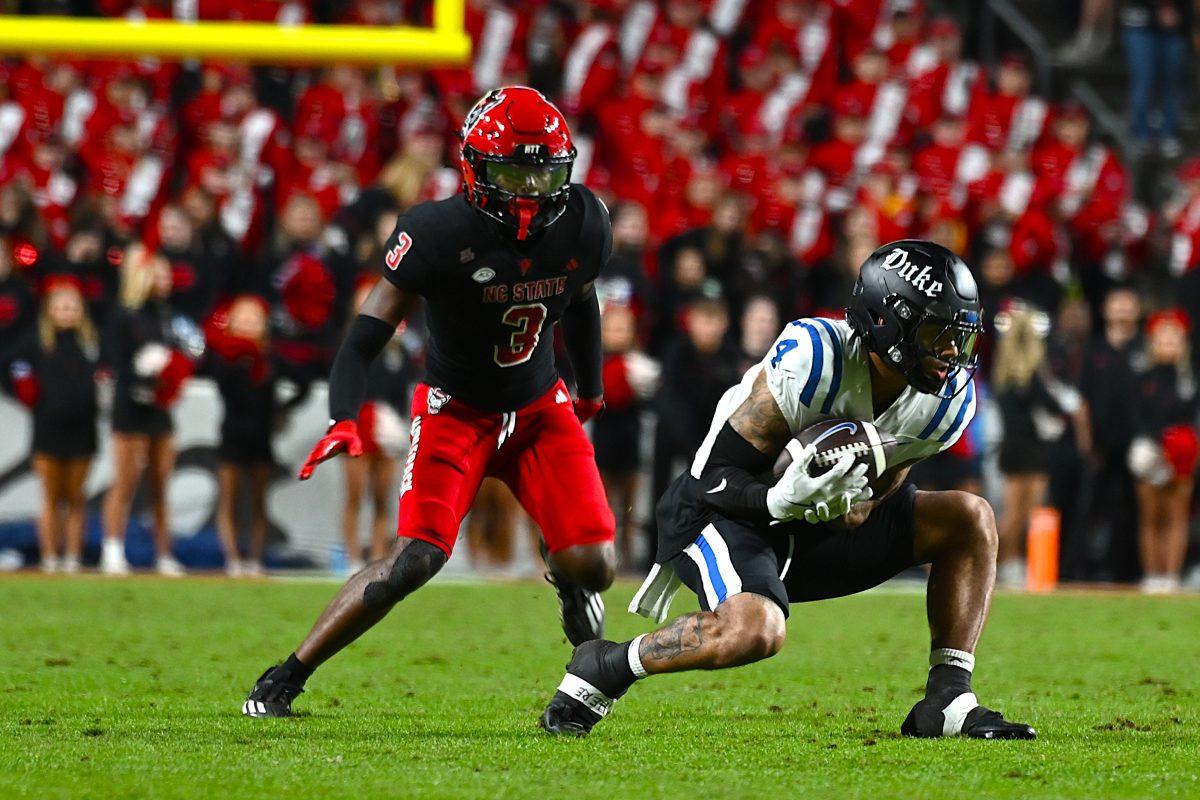San Francisco 49ers quarterback Colin Kaepernick made his return to football Friday when he suited up for the first time this preseason against the Green Bay Packers. However, it was not his play that is drawing a large buzz in the media. He sat down during the national anthem and when asked about it during media availability post-game he responded by saying, “I am not going to stand up to show pride in a flag for a country that oppresses black people and people of color.” This has brought his views on many aspects of this country into question.
His actions have been met by both intense backlash and matching amounts of vigorous support. Many of those in disagreement with his actions say that the flag and the anthem stand for all the people who have died for this country. I agree with this notion; however, we can’t cherry pick which parts of American society we want to be represented by the flag and everything else falls away. I argue that those people are intentionally ignoring statistical facts and the historical context of Kaepernick’s actions.
Statistically speaking, it is a fact that black people are much more likely to be shot and killed by a law enforcement officer than their white counterparts. In an article from the Washington Post, Wesley Lowery states that, “White people make up roughly 62 percent of the U.S. population but only about 49 percent of those who are killed by police officers. African-Americans, however, account for 24 percent of those fatally shot and killed by the police despite being just 13 percent of the U.S. population.” To me, the American flag stands for this fact as much as it does for the people who have died protecting our freedoms. The only way racial bias can be ignored is if an individual uses certain sections of the facts and not all of the story.
So, if you go off of sheer volume, yes, more white people are shot by police, but once you adjust for population percentages the actuality proves that Kaepernick has a point. That, combined with the fact that there were no convictions for murder in on-duty killings last year, create clear evidence that police can murder with impunity. There is also a historical antipathy shown by this country toward African-Americans that is ignored when many people speak about what the flag stands for.
It is a fact that at the time of this country’s inception, black people in America were legally considered property. On June 11, 1776, the Declaration of Independence was drafted by Thomas Jefferson, a slave owner. Slavery wasabolished by the Emancipation Proclamation in 1863. A document that says “all men are created equal” was drafted 87 years before slavery was abolished. It is also a fact that two years after slavery was outlawed there were laws called “Black Codes” that stood for over a century. The laws were ruled to be illegal in 1972. If you think that was so long ago, try calling a 44-year-old person old and see how that goes.
“The Star Spangled Banner” was written by Francis Scott Key. According to multiple sources, Key himself owned slaves, was an anti-abolitionist and he once called Africans “a distinct and inferior race of people.” There is also a verse that America has removed from the song but was with it in its origins. The verse reads,
“And where is that band who so vauntingly swore,
That the havoc of war and the battle’s confusion
A home and a Country should leave us no more?
Their blood has wash’d out their foul footstep’s pollution.
No refuge could save the hireling and slave
From the terror of flight or the gloom of the grave,
And the star-spangled banner in triumph doth wave
O’er the land of the free and the home of the brave.”
So before people get all high and mighty saying what the flag does and does not stand for, please realize that there is no exact definition of what the flag stands for. Like many things in life, there is no right answer to what the flag stands for. The definition of the American flag and national anthem are subjective. To some Americans, the flag is a symbol for all of the positive virtues that make America what it is and those who died protecting said virtues. There is also a flip side to that coin where some Americans believe that the flag stands for a legacy of colonization, racism and an attitude of apathy toward its own citizens who are people of color. Who are we to tell him what he should or should not protest and how he should go about it?














